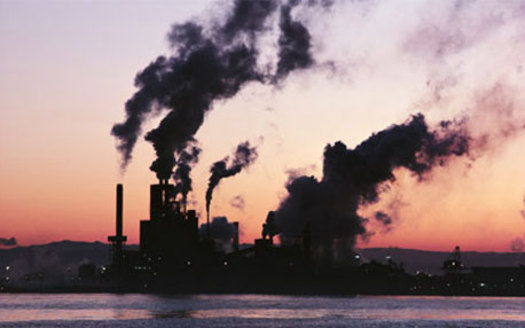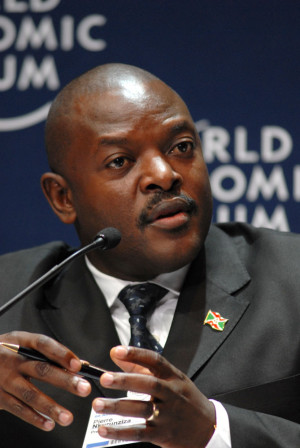Last Tuesday, amidst sweltering 41˚C heat at Georgetown University, the U.S. President proposed a ten step plan for addressing climate change during his second term. “As a President, as a father,” Obama said, “I’m here to say ‘We need to act.’ I refuse to condemn our generation and future generations to a planet that’s beyond fixing.”
The plan includes doubling America’s renewable energy by 2020, developing new fuel efficiency standards for heavy-duty vehicles post-2018, offering $8 billion in loan guarantees for “advanced fossil energy projects,” and seeking a global United Nations climate treaty that is “ambitious, inclusive, and flexible.” Many analysts have also noted his historic decision to limit carbon dioxide emissions from power plants. On this point, Obama’s new policy would direct the Environmental Protection Agency (EPA) to come up with new regulatory emissions rules, though Obama did not specify what these rules might be.
[captionpix align=”right” theme=”elegant” width=”300″ imgsrc=”http://natoassociation.ca/wp-content/uploads/2013/07/climate-1.gif” captiontext=”President Obama took a strong stance last week against climate change. Will his proposed policy be able to withstand the heat?”]
The bold plan is notably built to bypass Congress, circumventing the legislative branch that has proven itself to be a relentless opponent to any climate protection policy. Most of the important points set out by Obama would not require Congressional approval. Referring to his colleagues that refuse to acknowledge the existence of climate change, Obama stated “I don’t have much patience for anyone who denies that this change is real. We don’t have time for a meeting of the Flat Earth Society.” Much of the plan, then, would rely on executive powers.
While some might praise the decision to avoid relying upon a divided Congress for the implementation of the plan, what this move really illustrates is a sour environment for Obama’s new policy. Indeed, with such a dubious start, the plan might be better understood as a wish list rather than a comprehensive policy approach to tackling climate change. It is a fallacy to believe that circumventing Congress on these matters will limit their ability to obstruct these measures. Surely, in upcoming elections, Democrats will be punished for waging a “war on coal,” and will be painted as anti-oil. In an attempt to avoid this outcome, Democrats in coal states like West Virginia and Kentucky are distancing themselves from these contentious policies: West Virginia Democratic Senator Joe Manchin has already gone on record criticizing Obama’s plan.
Without a united front from government bodies on climate change policy, popular support for such ambitious measures will wane. The President is certainly a powerful figure in American politics and beyond, but his impact is limited; executive power alone is not sufficient to enact changes as significant as those proposed in the new climate change plan.
Because of his individual limitations and the unlikely support from Congress, it is important to note that Obama’s speech comes amidst a variety of significant announcements over the past few weeks, signaling that the President is not alone in his desire to rejuvenate climate change efforts. In an article written for Grist magazine, U.S. Secretary of State John Kerry indicated that addressing climatic change is “critical to [the] survival of our civilization.” Additionally, in a speech on the U.S.-India Strategic Partnership, Kerry stated that climate change is “a matter of shared security for all of us.”
Moreover, the G8 has officially declared climate change a global economic and security risk. In a communiqué released last week after the Lough Erne Summit in Northern Ireland, the G8 Nations recognized “climate change as a contributing factor in increased economic and security risks globally.” While the G8 is an informal body, in that its statements are not legally binding, the group is very influential in setting the global agenda on a range of issues, especially with regard to economic policy. As such, the Group’s declaration carries considerable weight. Minor though it may seem— a few words in a long and detailed document — Responding to Climate Change reported that the link “could influence the way emissions are dealt with at an international level.”
Along the same lines, the World Bank released a report on climate change, titled “Turn down the heat: climate extremes, regional impacts, and the case for resilience.” The report examines climate change impacts that are of immediate concern—as near as the next 20 years. This is notable because the majority of climate change reports focus on a future so distant that it is difficult for current generations to relate to the threat. For example, the study projected that major portions of Bangkok would be flooded by 2030, and that Ho Chi Minh City’s flood control system would need to be overhauled due to its obsolescence in the face of a sea level rise more extreme than initially predicted.
The sum of these statements suggests that public awareness of the crucial linkages between climate change and security is on the rise. Internationally, formal and informal organizations are elevating the prominence of the climate change debate, and raising the reputational costs of national inaction.
While Obama’s new climate policy might seem to be on the margins of the American political arena, with his speech receiving little if any media coverage in the U.S., the President’s message fits with the broader international trend established over the past few weeks. As a policy with both short and long term goals, domestic support is a necessary condition to ensure that Obama’s vision can be realized beyond his presidency. As Page and Shapiro famously demonstrated in their article Effects of Public Opinion on Policy, “public opinion is often a proximate cause of policy, affecting policy more than policy influences opinion.” In other words, there is a very strong correlation between public opinion and policy, and in order for Obama’s policies to achieve lasting success, he must persuade his domestic constituents to support the new climate policies, a task made more difficult without the help of the American Congress. However, if the international spotlight continues to be aimed at climate change, then perhaps Obama’s new climate policy can find the attention and support it requires to gain traction domestically. Only with the American public behind him can Obama’s new plan be realized.




